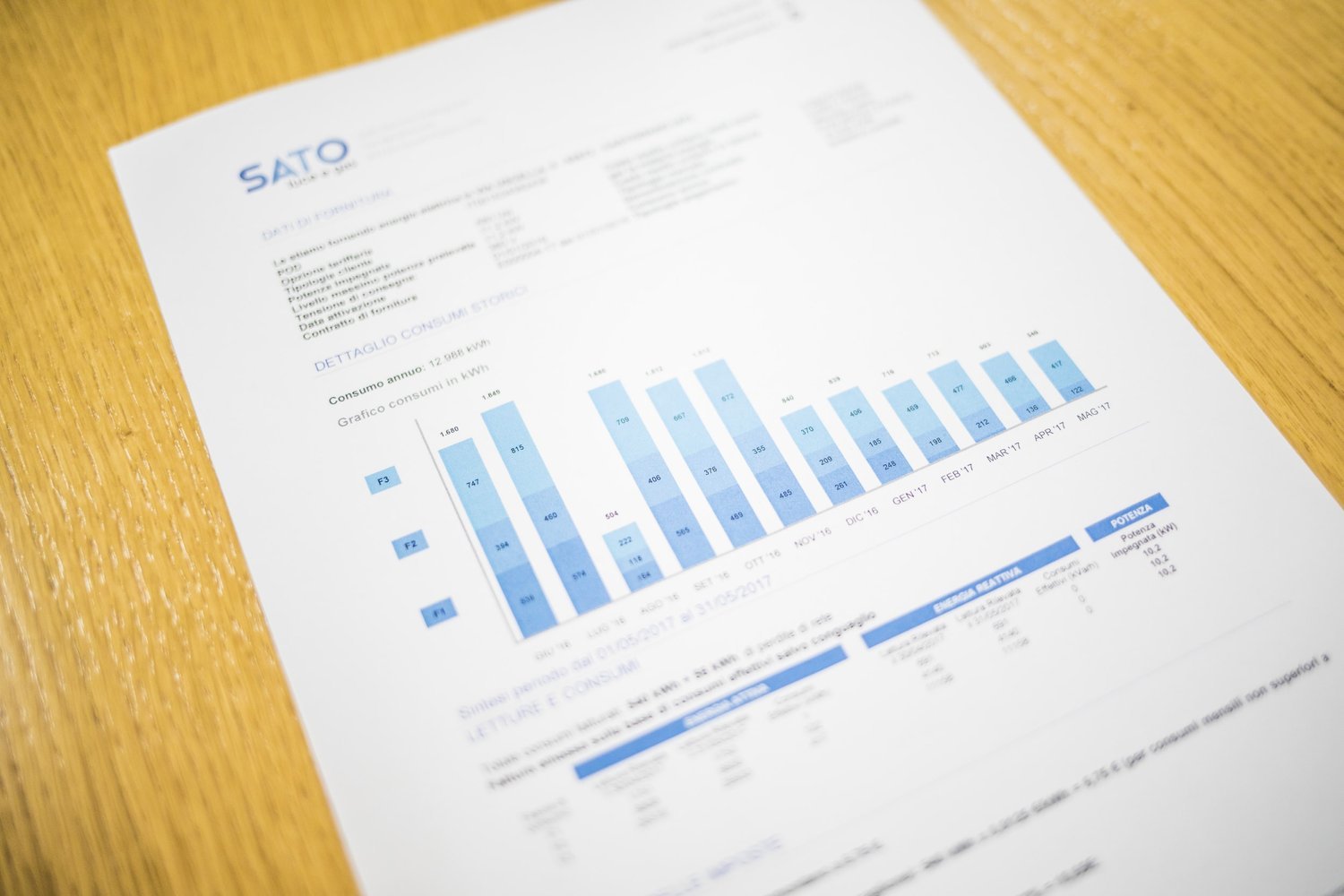Protecting customers from family violence
Fast Facts
On 23 September 2021, Red Energy and Lumo Energy submitted a rule change request to better protect customers affected by family violence;
The AEMC has commenced consultation, and released submissions on a Consultation Paper to amend the National Energy Retail Rules;
The rule change is intended to provide new assistance and protections for customers affected by economic abuse, which reportedly occurs in around 50% of all family violence matters;
The Consultation Paper outlines a number of potential option for changes to the current guidelines, which include ensuring retailers create and implement family violence policies, measures for better account security, the prioritisation of customer safety by retailers, creating family violence as a category of “cause of payment difficulty”, refining some aspects of debt management, and ensuring greater consistency between family violence policy and market retail contracts;
The AEMC also sought feedback on a number of other issues, including additional matters not raised in the consultation paper, alternative approaches from other jurisdictions, and the appropriateness of the assessment framework. Submissions were published in March of this year, and generally supported the work the AEMC is doing, including most provisions (with some amendments and considerations to take note of) while also noting that family violence is already an issue that retailers are proactively addressing, with a large number already adopting family violence policies.
Time has been extended for the publishing of the AEMC’s Draft Determination, which is now scheduled for 16 June 2022.
Background
Under the National Energy Retail Rules (NERR), there is currently no framework that explicitly protects customers that are suffering economic abuse, or family violence: only the AER currently considers family violence to be a cause of hardship. While the NERR does include some provisions to protect customers due to adverse economic circumstances, and provides guidance for delayed payments and payment plans, Red Energy and Lumo Energy have sought a rule change that is intended to better deal with circumstances where domestic abusers use essential services to harm or control their partners.
The AEMC noted that more than 50% of family violence cases involve economic abuse which involves the undermining of someone’s financial security through controlling finances, utility accounts, and/or incurring debt in a person’s name through coercive means to cause harm. The AEMC has also noted that essential services can be also used in a manner that facilitates technological abuse, such as accessing information to aid stalking, and accessing private information for personal harm.
The amendments proposed in the rule change application reflect the recommendations made by the Victorian Government’s Royal Commission (Comission) into family violence, and the subsequent amendments to the Victorian Energy Retail Code. Notably, the Commission recommended: the Victorian Government and the Essential Services Commission of Victoria work together to amend the State’s energy and water regulations to address economic abuse; and prescribe how retailers should consider economic abuse. The Commission’s final report also recommended that Victoria’s Energy Retail Code be amended to list minimum eligibility criteria for access to hardship programs, to explicitly include family violence as an eligibility criterion, and develop guidelines for customer service staff to receive training to identify family violence situations.
The AEMC has proposed that this rule change be treated as a high priority.
Key Issues
The Rule Change request by Red Energy and Lumo Energy outlines a number of proposed changes that align with the recommendations of the Victorian Royal Commission and accompanying amendments. Where recommendations made by the Commission were not included within the rule change request, the AEMC consulted on those to ensure the comprehensiveness of potential protections.
Proposed changes and additional components raised by the AEMC
The matters on which the AEMC is seeking submissions include:
A requirement that all retailers develop and publish family violence policies containing information on any assistance available to family violence victims. The AEMC is specifically seeking to understand the levels of prescription that should be included and whether this policy should take priority over a market retail contract;
The implementation of account security measures to protect account information for customers affected by family violence, specifically that a Retailer cannot disclose a customers personal information without prior consent, and that a Retailer must find a preferred communication method for an affected customer. The AEMC extends on the Victorian amendments by adding that a customer’s preferred method must be unequivocally respected;
The implementation of explicit rules that ensure Retailers must have paramount regard for a customer’s safety, which are currently not explicit within the NERR. The AEMC is trying to understand the benefits and challenges associated with including such rules;
The recognition of family violence as a cause of financial hardship, using the AER’s Hardship Guidelines as an exemplar, which proposes similar requirements already. The AEMC seeks to understand whether there is any additional benefit in explicitly outlining a clause that requires family violence to be recognised as a form of payment difficulty – allowing customers affected by family violence to access hardship assistance without being in debt;
The inclusion of additional protections for customers when a retailer is considering recovering a debt, to protect customers from disconnection for a debt they did not cause, in line with the Victorian Energy Retail Code; and
Retailers only being able to ask for evidence of family violence in situations of disconnections, where the documents being sought must be reasonable for the purposes of de-energisation – being careful of the potential for trauma to be caused as a result of customers providing such documentation.
A number of components from the Victorian amendments have not been included within the rule change request, however the AEMC is consulting on additional components that can logically be included in the amendments to the NERR. Such matters include:
Protections being extended to apply to small business customers, with the proposed rules currently only applying to residential customers. The AEMC is specifically interested in stakeholder submissions on the complexity of processes involved with business structures, and communications with business owners.
The mandating of training for Retailer staff, with the AEMC interested in hearing of any benefits, costs or precedents involved in similar circumstances. The Commission recommended comprehensive, on-going and up-to-date training for all customer service staff in identifying family violence;
A requirement on Retailers to ensure the implementation of systems that minimise the need for customers to disclose their experience multiple times. The Victorian Energy Retail Code currently includes provisions to ensure a secure process, with the AEMC seeking stakeholder views to try and understand this at a national level; and
A requirement for Retailers to refer affected customers to appropriate support services, with the AEMC being particularly interested in how this interacts with staff training issues.
Additionally, on a broader level, the AEMC wants to understand stakeholder perspectives on the compliance and enforcement issues that arise with the proposed amendments, given the rule change request does not propose civil penalties for any breaches of the rules (to be contained in the NERR). The AEMC has floated the idea of recommending certain provisions be added to the list of civil penalty provisions, however, want to understand stakeholder views before taking any steps.
Cross-sector guidance
The AEMC is trying to understand stakeholder perspectives on the potential for cross sector guidance from regulatory approaches across two different sectors to understand if these could complement or substitute any aspect of the proposed rule. The two highlighted by the AEMC include the Water Industry in Victoria, which enforces minimum policy requirements, and the banking/financial sector which relies on an industry code. The AEMC wants to gauge the potential effectiveness of a cross-sector approach, which would entail a coordinated response across three sectors to provide a comprehensive set of protections.
Overview of Submissions
Overall, the AEMC received 18 on-time submission, and 3 late submissions. The AEMC does not need to have regard to late submissions but may choose to do so.
There are a number of broad categories of submissions, covering Retailers, Customers, Ombudsman, Consumer Advocacy Groups, Mental Health Support Groups, and other groups with involvement in policy advocacy for family violence survivors.
Retailer Submissions
The consultation paper received 11 submissions from retailers, which included: ReAmped Energy, Energy Australia, Ergon Energy, Essential Energy, Origin Energy, Telstra, Aurora Energy, Momentum Energy, Tango Energy, AGL, and Simply Energy;
Amongst retailer submissions, there is an overall consensus of support for the AEMC in attempting to protect customers from family violence, with all retailer submissions noting the importance of this work in ensuring customers do not experience hardship when faced with family violence;
Of the 11 retailers, Ergon Energy is the only retailer to not have an explicit family violence policy – albeit it incorporates family violence as a form of hardship within its hardship policy;
Both ReAmped Energy and Essential Energy are supportive of the rule change in its current form, offering no amendments or recommendations;
Aurora Energy supports the adoption of all elements, and offered extensions on the rule, including the adoption of an individual family violence policy, the rules extending to small business customers (i.e. businesses operated by partners, in own names etc.) , and no civil penalties being applied to retailers for non-compliance (as this could stifle an already strong motivation for change within the industry);
Origin Energy and Simply Energy are of the position that a civil penalty provision should not apply, with Simply Energy stating that it would “prefer the Australian Energy Regulator to utilise its compliance functions in the first instance and only take enforcement action for repeated non-compliance”
Telstra only very briefly touched upon the timeline for implementation, proposing that the end of the year would be most efficient and would allow sufficient time for implementation. They had no specific position on whether small business customers should be protected;
AGL and Energy Australia, two of the largest incumbent retailers, agree that small business customers should be protected, with AGL being adamant that “Victim-survivors of family violence should not be denied access to support measures based on their energy account class and structure”. These submissions are likely to have some weight behind them, considering that the coverage of their customers alone would be a large proportion of the population;
Simply Energy and Origin Energy both agree that the rule should not cover small business customers, with Origin mentioning that “Small business structures can be complex, with shared liability for debt accrued by the business”. Origin is one of the other large incumbents, so it will be interesting to see the deliberation in the small business customer coverage discussion;
Simply Energy, AGL, and Origin all support mandatory training. Ergon supported this training being undertaken by specialist staff. This was backed up further by Energy Australia, which stated “EnergyAustralia believes the AER should work with family violence training specialists, to develop guidance that can aid retailers in designing their own training and development processes”;
Tango Energy agreed with mandatory training, but offered suggestions that follow “the current requirements under the Victorian Energy Retail Code of Practice require training to be provided to certain retail staff members as well as requirements as to what must be addressed in the training. The rule change proposed by Red and Lumo omits this requirement. Removing this requirement could result in retailers not giving proper training to their staff in relation to how to identify and deal with family violence-affected customers.”;
Momentum Energy focussed on offering minor amendments to wording and structure of the rule change – looking at changes across Disclosure and Consent;
Energy Australia noted that retailers should have discretion into how they are able to provide solutions to customers regarding the disclosure of documents, and suggested “a retailer could have a simple option to flag a customer’s account, and this will provide notification to the retailer agents that this customer is being impacted by family violence.”;
Ergon Energy and Origin Energy did not agree with the prescriptive requirements to require a retailer to actively refer a customer to an external support service, with Ergon noting that the number of support services is extensive and impossible to narrow, and there is a risk of written referrals being discovered by abusive partners. Origin agreed with providing support in an appropriate manner, but noted that “if staff have undertaken compulsory family violence training, they would be well-placed to identify appropriate support”; and
Origin Energy considered that the rule change should extend to embedded network operators, with the physical location of where a customer receives their electricity supply not impacting their ability to obtain family violence assistance.
Customer, Ombudsman, and other Submissions
There were a large number of submissions from non-retail bodies, which included: White Ribbon Australia, the Economic Abuse Reference Group, the Energy & Water Ombudsman SA, HelpPay, Energy Consumers Australia, the Tasmanian Council of Social Service, and the Australian Energy Council. Late submissions were received from the AER, Uniting Vic. Tas, and a collaborative submission from a number of advocacy centres.
Once again, there was a broad consensus regarding the sentiment behind the rule change, with all interested parties supporting the need for better rules to protect family violence victims. Particular submissions of note include:
All submissions were in agreement that proper, specialist family violence training is required, with Uniting Vic. Tas noting “Specialist family violence training is a critical component in equipping businesses to identify and respond appropriately”;
A number of submissions supported small business customers being protected by the rules, given a large number of Australian small business being family-run. Energy Consumers Australia summarised well, mentioning “The pervasive impact of coercion is not confined to a customer’s residential arrangements, and we believe a comprehensive approach to ensure consistent outcomes for affected customers must include SMEs”;
HelpPay, a social impact enterprise and fintech that makes it easier to share bills and help those in need pay bills, believe technology can be utilised to empower customers to control debt accumulation in a manner that is currently ill-protected. They submitted that “the rules can be enhanced and supported by researching innovations including digital technologies to enable secure, discrete payments that enable and empower victim survivors of family violence to get out of their situation with minimal to no financial hardship or repercussions. From our experience it is clear that debt prevention is more effective than debt collection”
Our Insights
Family violence and economic abuse are insidious issues, and there is no doubt that energy purchasing arrangements are one of the many tools at a perpetrators disposal to maintain and inflict coercive control. From that perspective, the complete and unanimous support of all retailers, and community groups, makes complete sense and reflects clear societal condemnation of the issue over the last 20 years.
There are three subtle issues to be considered when thinking about whether industry should bear the costs of addressing this issue, and how support and help is best provided.
Firstly, the rule change is similar to other recent regulatory reforms (for example the AER’s recent Better Bills Guideline) and poses the same questions as to whether the prescription of regulations is necessary for an issue which is already being dealt with by retailers in different ways. For reference, 10 of the 11 Retailers which lodged a submission already have family violence policies in place, with Ergon Energy being the only submitting Retailer to not have and explicit family violence policy (although includes family violence as a form of hardship within their overarching hardship policy).
Secondly, regulatory burden is felt most acutely by second and third tier retailers which have lower revenue bases, customer numbers and margin. There will therefore an asymmetric application of the rule change, unless this is explicitly dealt with as a design feature. The AEMC will need to be reminded through this rule change process that uniform support for an issue does not support every possible design of remedy, and that retailing is a low margin, highly competitive and constantly evolving business. The ideal rules would focus heavily on an ultimate design which both satisfies the intent of the royal commission and best deals with the asymmetry of costs on different retailer tiers.
Thirdly, the Commission’s recommendations and accompanying amendments are situated in the Victorian context, amending Victorian rules, with consultation amongst Victorian retailers solely for Victorian Retailer operations. There is a possibility that what works in Victoria, may not be applicable in the same sense across all jurisdictions, with uniform consistency. ATelstra noted, “We do not think it is necessary for a ‘model policy’ to be developed, particularly as this may then lead to divergences between the Victorian and NECF requirements in future. Flexibility in the policy will allow retailers to create national consistency for customers and simplifies operational requirements”.
For more information, contact Matt Rennie at mrennie@renniepartners.com.au




